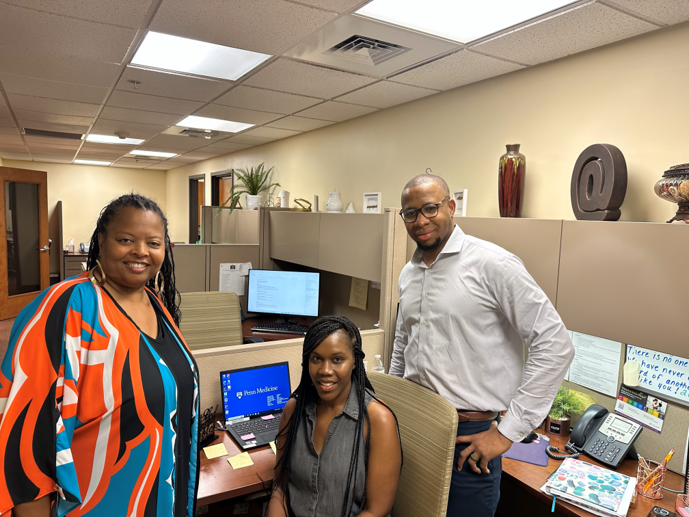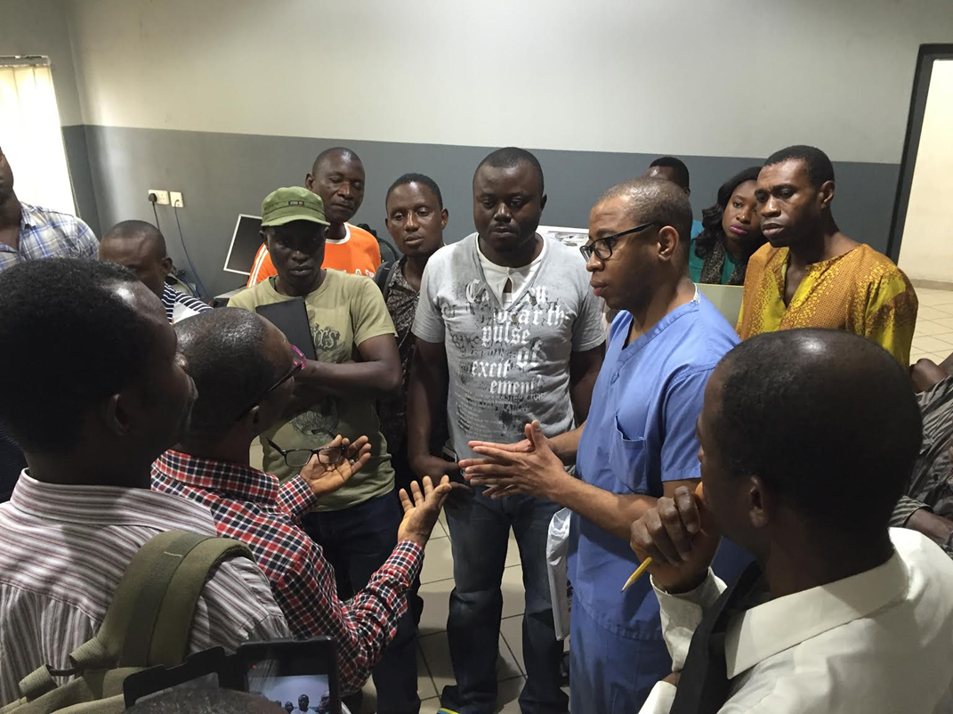Dr. Farouk Dako never wanted to be put in a box.
The Assistant Professor of Diagnostic Radiology at Perelman School of Medicine, Dr. Dako has always seen a bigger role for radiologists than the “box of radiology,” which – as he describes it – often revolves around interpreting images and never interacting with patients. Instead, as he reflected on his profession as part of International Radiology Day, he sees radiology as an opportunity to advance global and population health while improving access to healthcare, specifically imaging access around the world, at a time when almost two-thirds of the global population lacks access to appropriate imaging technology.
The Potential for Radiology
Dr. Dako first realized radiology could break outside the box early in his career, when he was a resident at Temple University. While he was there, he worked with then-Chair of Radiology Clifford Belden, with whom he wrote papers about the role of radiology and value-based care.
“I think that was when I started to have confidence that we (radiologists) could be impactful beyond interpreting images,” he said.
Encouraged by his mentors, including Dr. Ruth Carlos, Professor of Radiology and Assistant Chair for Clinical Research at the University of Michigan, he started to explore the many ways radiology could help beyond reading scans.
“I think it is easy to remain in the box even when receiving guidance from mentors who might say, ‘Hey, you are a radiologist. You should be doing this,’” he said. “But I think Ruth was the first one that said, basically, you don't have to work in this box, and you can do all these things you want to do.’ And it was easy for me to believe her because she's doing a lot of those things that I wanted to do.”
Since joining the Perelman School of Medicine at the University of Pennsylvania, Dr. Dako has led multiple community-engaged data-driven research projects in Philadelphia aimed at making healthcare delivery and cancer care more equitable. He has also taken his work to other countries, heading several research projects aimed at improving our understanding of cardiovascular disease and cancer manifestation in Africa. This work was encouraged by Dr. Dako’s mentor in global health, Dr. Daniel Mollura, the Founder and CEO of RAD-AID International, a radiology nonprofit organization for which Dr. Dako now serves as the Nigeria Program Director and Board Member.
Based on his experience, Dr. Dako believes radiologists can not only play a bigger role in patient care, but he also sees the potential for them to engage in collaborative projects addressing social determinants of health, while leading community engagement.
Dr. Dako with community partners in the Community of Compassion CDC community center, West Philadelphia (2023) (Photo courtesy: Dr. Farouk Dako)
Advancing Technology and Personalized Care is Transforming the Field of Radiology and Global Health
With the advancement of precision care, Dr. Dako also sees radiologists working more closely with patients, their data, and the rest of the healthcare team to create more personalized diagnoses. While some may see advanced technology, such as artificial intelligence, in a negative light, Dr. Dako believes it will undoubtedly benefit the healthcare space. The key is learning to adapt.
“With the current times as things like artificial intelligence are happening, precision medicine is beginning, as we start to see value-based care really take off,” he said, “it's important to understand that the role of the radiologist has to evolve.”
Instead of seeing AI as a replacement, Dr. Dako believes radiologists should advocate for it because it is actually an “augmentation” that has the potential to improve the efficiency and accuracy of radiologists, rather than replace them.
Dr. Dako is also excited about how technology has advanced health equity on a global level. As a solution to the global radiologist shortage, Dr. Dako highlighted the growing use of teleradiology, which enables remote readings through portable imaging devices, such as x-rays and ultrasound scans, and helps radiologists to remotely diagnose and treat diseases, such as cancer and tuberculosis. This can have a profound impact on health equity and global access, especially in rural regions where it can be challenging to find the right technology and specialist.
Dr. Dako discusses medical equipment maintenance with biomedical engineers in Lagos, Nigeria (2016) (Photo courtesy: Dr. Farouk Dako)
“These are not things to do just because they're cool or they're fancy,” he said. “These are things that we must do to maintain our status as a valuable player in the healthcare team. We must improve access to our imaging studies around the world, including to people who traditionally don't have access, to demonstrate its true value. We must get involved in coordination of care to make sure that our studies are used in the appropriate way. We must be present around the world because what we are seeing is that in the absence of radiologists in low resource settings, other providers are stepping in to play our role. So, I think this is something that is important for the prosperity of our specialty.”
And on International Day of Radiology, Dr. Dako wants people to remember that radiologists are a vital part of the healthcare team.
“The most important thing in healthcare is an appropriate diagnosis, and radiology plays a key role in that process,” he reflected. “Getting that right ultimately saves healthcare dollars down the road, makes the patients happier because they’re healthier and it makes the rest of the team’s jobs easier.”



